Life
Sign up for our newsletter
We summarize the week's scientific breakthroughs every Thursday.
-
 Health & Medicine
Health & MedicineHow two coronavirus drugs for cats might help humans fight COVID-19
Scientists are exploring if drugs for a disease caused by a coronavirus that infects only cats might help also people infected with the coronavirus.
-
 Neuroscience
NeuroscienceNew guidance on brain death could ease debate over when life ends
Brain death can be a tricky concept. Clarity from an international group of doctors may help identify when the brain has stopped working for good.
-
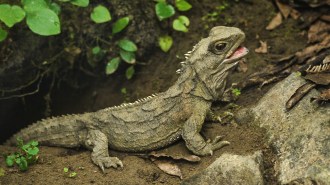 Animals
AnimalsHow tuatara live so long and can withstand cool weather
Tuatara may look like your average lizard, but they’re not. Now, researchers have deciphered the rare reptiles’ genome, or genetic instruction book.
By Jake Buehler -
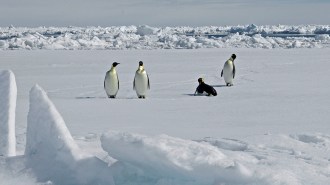 Animals
AnimalsPenguin poop spotted from space ups the tally of emperor penguin colonies
High-res satellite images reveal eight new breeding sites for the world’s largest penguins on Antarctica, including the first reported ones offshore.
-
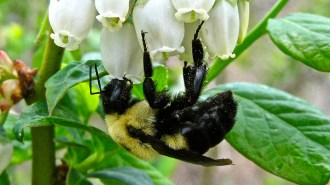 Life
LifeWild bees add about $1.5 billion to yields for just six U.S. crops
Native bees help pollinate blueberries, cherries and other crops on commercial farms.
By Susan Milius -
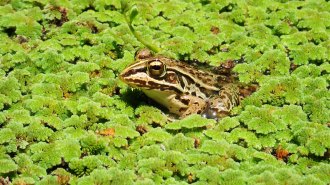 Life
LifeWater beetles can live on after being eaten and excreted by a frog
After being eaten by a frog, some water beetles can scurry through the digestive tract and emerge on the other side, alive and well.
-
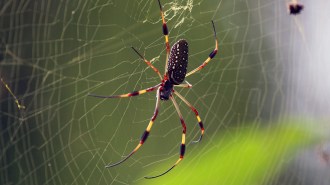 Animals
AnimalsSome spiders may spin poisonous webs laced with neurotoxins
The sticky silk threads of spider webs may be hiding a toxic secret: potent neurotoxins that paralyze a spider’s prey.
-
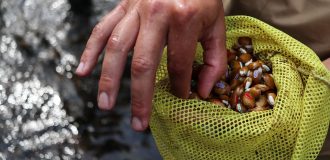 Ecosystems
EcosystemsTo save Appalachia’s endangered mussels, scientists hatched a bold plan
Biologists have just begun to learn whether their bold plan worked to save the golden riffleshell, a freshwater mussel teetering on the brink of extinction.
-
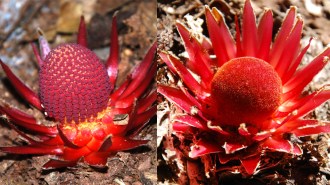 Plants
PlantsThis parasitic plant consists of just flashy flowers and creepy suckers
With only four known species, Langsdorffia are thieves stripped down to their essentials.
By Susan Milius -
 Animals
AnimalsAn immune system quirk may help anglerfish fuse with mates during sex
Deep-sea anglerfish that fuse to mate lack genes involved in the body’s response against pathogens or foreign tissue.
-
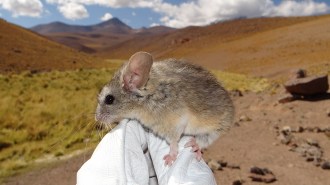 Animals
AnimalsA South American mouse is the world’s highest-dwelling mammal
At 6,739 meters above sea level, the yellow-rumped leaf-eared mouse survives low oxygen and freezing conditions atop a dormant volcano.
By Jack J. Lee -
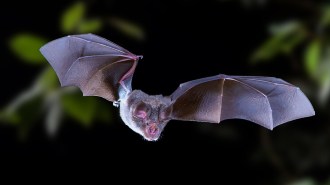 Health & Medicine
Health & MedicineClose relatives of the coronavirus may have been in bats for decades
The coronavirus lineage that gave rise to SARS-CoV-2 has been circulating in bats for around 40 to 70 years, a study suggests.